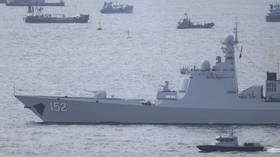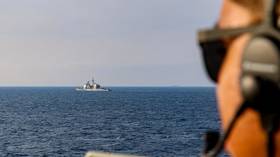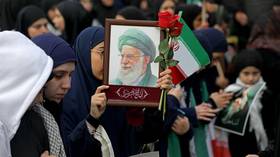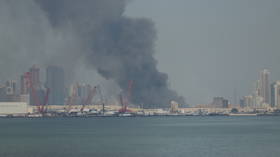US admiral issues China naval blockade warning

China is entirely capable of imposing a naval blockade on Taiwan, commander of the US Seventh Fleet, Vice Admiral Karl Thomas, acknowledged in an interview with The Wall Street Journal published on Monday.
“They have a very large navy, and if they want to bully and put ships around Taiwan, they very much can do that,” the admiral said.
China has already created a large and modern navy, Thomas stated, with the number of military vessels at Beijing’s disposal continuing to grow rapidly. The admiral said that he did not, however, know whether China is seeking to take any actual action against Taiwan, which Beijing regards as an integral part of its territory, whether through an all-out invasion or a naval blockade.
“Clearly, if they do something that’s non-kinetic, which, you know, a blockade is less kinetic, then that allows the international community to weigh in and to work together on how we’re going to solve that challenge,” he explained.
Beijing has also bolstered its military presence in the South China Sea, a busy waterway to the southwest of Taiwan, and has already “completely militarized” artificial and natural islands under its control in the waterway, the admiral also pointed out.
“They already have all the bunkers they need, they already have all the fuel storage capacity they need, the ability to house troops, they have the missiles, the radars, the sensors,” he said.
Taiwan has been a major issue in US-China relations for decades already, with tensions further aggravated by a recent visit by the US House Speaker Nancy Pelosi to the island. Pelosi traveled to Taiwan in early August, ignoring repeated warnings from Beijing to avoid doing so, becoming the most high-ranking US official to visit the island in more than 25 years.
Taiwan has been self-governed since 1949, when Chinese nationalists fled the mainland after losing the civil war to communists and setting up their own administration on the island. While formally recognizing Beijing’s sovereignty over the island and the ‘One China’ principle, Washington has maintained close informal ties with the island nation.
China considers Taiwan to be part of its sovereign territory which has been temporarily seized by separatists. Beijing has repeatedly said it would seek “reunification” and has not ruled out a military option to achieve this goal.













